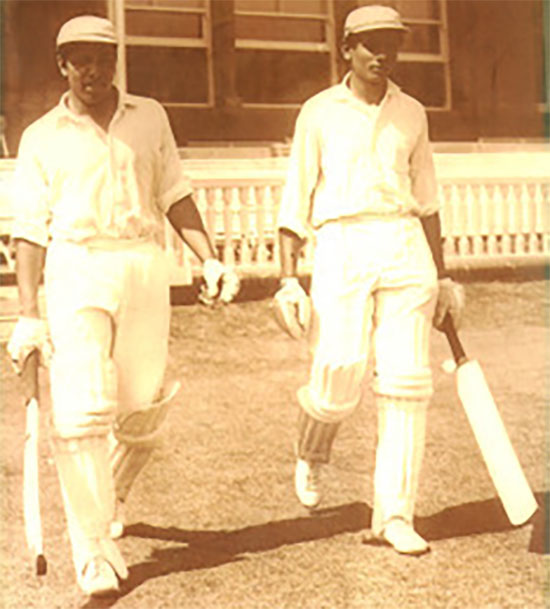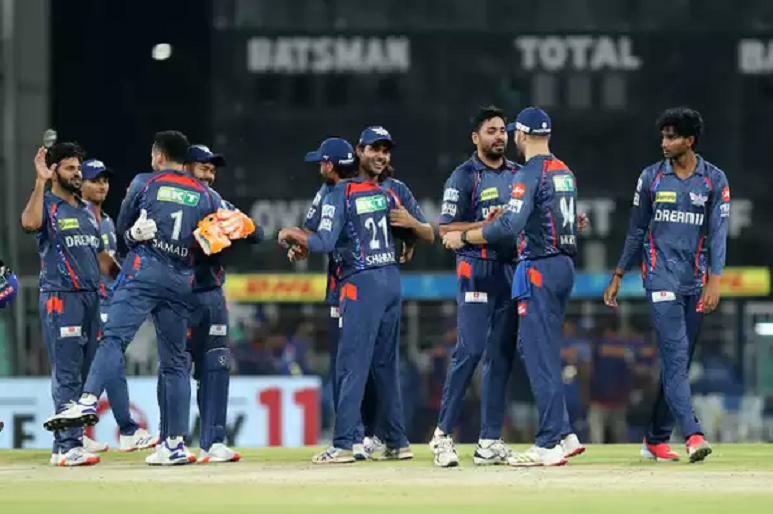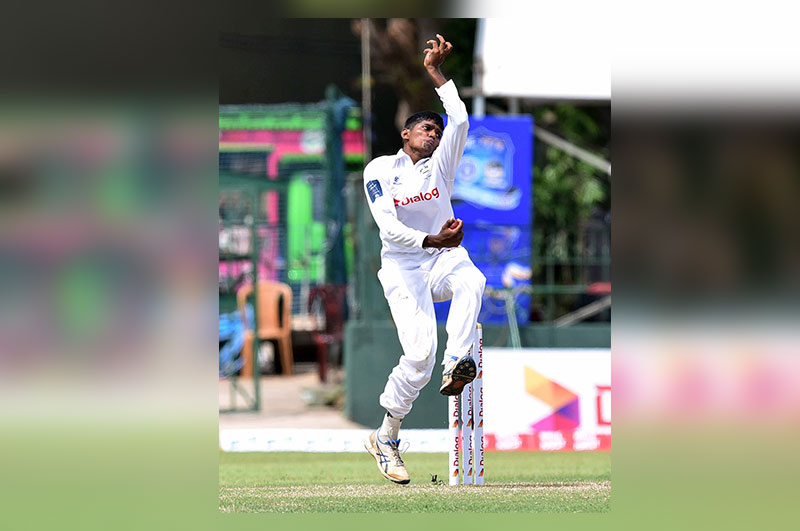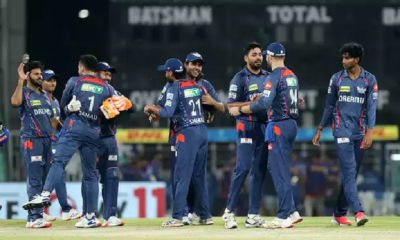Sports
The incomparable Vijaya Malalasekera

By Rohan Wijeyaratna
 It was the Royal – Thomian of 1963. Royal batting second were facing a formidable Thomian total of 254 for 8 declared. Before long they were heading for trouble at 34 for 3. That’s when a fresh-faced youngster still only 17, made his way to the middle. Before his arrival, he was subjected to a copious dousing of well-meant advice from Saliya Atapattu – a former Royal sporting personality, seated next to him in the pavilion. It was all about what must be done to avert a possible calamity, since that possibility now seemed staring Royal, squarely in the face.
It was the Royal – Thomian of 1963. Royal batting second were facing a formidable Thomian total of 254 for 8 declared. Before long they were heading for trouble at 34 for 3. That’s when a fresh-faced youngster still only 17, made his way to the middle. Before his arrival, he was subjected to a copious dousing of well-meant advice from Saliya Atapattu – a former Royal sporting personality, seated next to him in the pavilion. It was all about what must be done to avert a possible calamity, since that possibility now seemed staring Royal, squarely in the face.
Distinctly funereal
As if to confirm Saliya Attapattu’s worst fears were no stretch of his imagination, Royal were soon 42 for 4 when Tony Sirimanne (later of CR fame) snared the scalp of the Royal skipper S.S. Kumar for very little. Let alone overhauling the Thomians, getting past the follow-on mark now seemed a distant dream for the Reid Avenue boys. The Thomian attack consisted of burly Roger D’ Silva, Barney Reid, Tony Sirimanne, Panditharatne and Sarath Seneviratne, and as Cedric Fernando now wended his way to join Vijaya Malalasekera in the middle, the mood in the Royal camp was distinctly funereal, while the noise from the Thomian camp threatened to lift the pavilion rafters.
Roger D’Silva with his tail up, was bowling like the wind, and Barney Reid was doing his usual thing – bowling spin and swing with mesmeric skill and guile, out-foxing everyone standing 20 yards away. With Cedric Fernando’s arrival, everyone resigned to expect the worst.
That was when the perfect anti-climax slowly began to unravel.
Took the bull by the horns
Malalasekera -a fresh faced lad, strong of build and even stronger of temperament, wasn’t the type to die wondering. Being a cricketing buccaneer of sorts, he quickly ditched Saliya Attapattu’s well meant advice, no sooner he got up from his pavilion seat. Deciding instead to take the bull by its horns, Malalasekera cut loose with an array of stinging square cuts, drives, pulls and hooks, against Roger D’ Silva’s menacing pace. Then he proceeded to nullify Barney Reid’s nagging accuracy, guile and cunning, by unleashing an array of strokes of such breathtaking fury, they were now being wildly cheered by even those in the Thomian camp, who by then had reached an advanced state of inebriation and didn’t know who was doing what. Noisy pavilion banter argued whether or not this was the most furious innings ever seen at a Royal-Thomian. Let there be no mistake; this was no exhibition of vulgar village green hitting. Instead, it was fearsomely orthodox stroke play, executed with immense power and precision. In short, it was reminiscent of an Everton Weekes’ innings when in full flow. Some of Vijaya’s drives to the cover boundary were of such ferocity and force, the ball would hit the short parapet wall at the front of block C or D at the Oval, and ricochet right back to the actual playing strip! Thanks to this unprecedented assault, Malalasekera reached a sensational hundred in just two hours and 10 minutes on either side of lunch on day two. That innings which contained 20 fours and one six turned the flow of the game on its head, and to date ranks as one of the most fiercest exhibitions of sustained hitting ever seen in the entire history of the Royal-Thomian. Shortly after that blitzkrieg, Royal declared at 207 for four.
Hadrian’s wall
Throughout it all, Cedric Fernando served as the perfect foil for Vijaya, presenting a bat which rivalled Hadrian’s great wall beyond which no ball could pass. No amount of praise would do him justice for the role he played in this gallant partnership. Although playing second fiddle, Fernando played a stellar role in the proceedings and at the declaration was unbeaten on 47. Malalasekera remained unbowed on 112,whilst playing the innings of his life.
Never a selfish cricketer
Vijaya Malalasekera was never a selfish cricketer. Instead, he was a supremely confident young man with a cavalier bent, ready and willing at all time to back his own instincts. Not in a conceited way, he was cocky up to his eye-lashes, of his own abilities. It was not in his character to tailor his innings to make good his promise to his parents, that should they come down from London to witness the match, he would make a hundred. Grapevine rumour has it that the father in a moment of light headed recklessness had responded saying that in that event, he would secure his son a seat at Cambridge. Being Ceylon’s Ambassador in England at the time, there was not a lot Gunapala Malalasekera could not do, given the esteem in which he was held in those parts. But Vijaya being Vijaya and therefore hugely popular and totally out-going in a literal and metaphorical sense, had little time for study whilst at Royal. As things panned out Vijaya secured his place at Cambridge after acquiring the necessary entrance requirements in England. The story heard through the grapevine of his father’s promise to get him to Cambridge in return for a ‘big match’ hundred may be or mayn’t be true, but it is a good story and therefore shall be retained. What is definitely true however, is that his sporting stock rose considerably after his ‘big match’ performance and tilted the scales in his favour, when the prestigious ‘Schoolboy Cricketer of the Year’ award was announced. That was a fitting culmination to a terrific season for this hugely popular, fun loving young man.
On the strength of that one inning Vijaya Malalasekera was included in the Colts XI which played the University in a crucial game which would decide the Sara Trophy champions for that year. Malalasekera played a brief but trademark innings as Colts got the better of their opponents who went on to win the championship on points. That was the only Sara trophy game Vijaya played in Ceylon, before proceeding to England to join his parents. With his departure, he forewent the Royal College captaincy the following year.
Having fulfilled the entrance requirements and charmed his way past the Admissions Tutor at Fitzwilliam College in Cambridge, Malalasekera was in like a breeze and allowed to read for a degree in Law in 1966.
Murray asked to leave
Much like Lorenz Pereira of a slightly earlier vintage and quite predictably, Vijaya enjoyed his life at Cambridge to the fullest. So did one Deryck Murray, who kept wicket for the West Indies and captained the Varsity at cricket in 1965 and 1966. Murray took an instant liking to Vijaya, both for his style of batting and his approach to life. In fact, Murray tended to enjoy himself so much, he was kindly asked to leave the University by the end of his second year whilst being Captain of Cambridge! The social life at Cambridge seemed irresistible to some, and a source of immense distraction to cavalier cricketers, who were unwilling to have their noses constantly pore over their books while the bright lights beckoned. In Malalasekera’s first year (1966) while batting at No 6, he played 24 innings in 13 first class matches, making 323 runs with a highest score of 80 at an average of 13.45. Against Essex in his very first match Vijaya batting in the same vein as his ‘Big Match’ innings of 1963, pummeled a brilliant 80 against the likes of Barry Knight, Robin Hobbs and Ray East, and against Northants, he made an attractive 72 teaming up with Deryck Murray to record the highest Cambridge total for the season. But as Wisden pointed out, “….. V.P. Malalasekera from Ceylon, flattered only to deceive too often.” All told, Cambridge enjoyed a poor season in 1966.
Peter May’s admiration
Having enjoyed a reasonably successful first year, Malalasekera failed to become an automatic choice the following year as his magical form deserted him. Consequently, and much to his chagrin he was left out of the Cambridge side, and was playing for the Fitzwilliam College XI instead; a crushing blow to a young man’s ego. However, in the annual Cambridge University v Quidnuncs (former Cantabrigians) fixture, Steve Russell, the Cambridge captain invited Malalasekera to open batting with All-Ceylon opener Mano Ponniah, who had by then, just joined the Varsity.
Stung by the fact that he was dropped from the Varsity team, Malalasekera on his way to the middle, somewhat nervously asked Ponniah not only to take first strike, but also to ‘take it easy’ against Test opening bowler Richard Hutton, who was tasked to open the proceedings. Ponniah taking first strike promptly forgot his solemn promise and gleefully took a single off the very first ball to get off strike. This brought Vijaya Malalasekera to face England Test paceman Richard Hutton, now in his prime.
As Ponniah recalls, nervousness was plainly visible on Vijaya’s face. In fact, his face seemed whiter than Hutton’s! That was before the ball arrived. It came at a screaming pace and left at a screaming pace. In-between, Malalasekera had leaned into it and stroked it superlatively on the up with such sublime timing and placement, the ball vanished like a startled banshee, gathering speed as it went. This was such a spectacular strike through the covers, Peter May standing at first slip could not resist applauding, and as he crossed to change ends at the end of the over, he stopped and asked Vijaya for his 2 lb 2 oz bat to have a closer look at it. Peter May the ex- English captain was renowned as one of the hardest strikers of a cricket ball in England in his glory days of active cricket.
 Cambridge team pictured besides the Grace Gates at Lord’s. Vijay Malalasekera seated front row extreme right and Mano Ponniah standing second from right.
Cambridge team pictured besides the Grace Gates at Lord’s. Vijay Malalasekera seated front row extreme right and Mano Ponniah standing second from right.
The first Asians to open for Cambridge
For the record, Mano Ponniah and Vijay Malalasekera were the first Asians to open for Cambridge in the Varsity game of 1967. This was Ponniah’s first year at Cambridge. Vijaya missed playing in the entire 1968 season, thanks to a troublesome shoulder injury.
Completing his degree the following year, Malalasekera proceeded to Law College, where he passed his Law exams in 1970. Reading his name on the notice board one day, he was so thrilled, he ran all the way to his erstwhile friend Gijra Rajapakse’s digs to break the news and proceeded to ring all known Sri Lankan friends to come along to London House to fittingly celebrate his success!
Chose his friends wisely
Unsurprisingly, Vijaya– at least outwardly -was a strong Buddhist. He was also an internationalist in every sense of the word. He saw no division amongst religions; a fact driven home by his marriage to Niri – a strong catholic. Gijra Rajapakse was the Bestman at the wedding. The story goes that Gijra, walking alongside Vijaya just seconds before they entered the church together, whispered in his ear “Malalasekera, the car is outside; in case you change your mind”. There was no gain saying Vijaya chose his closest friends wisely!
Among the hand luggage he carried with him on his way back to Ceylon was a book on Buddhism picked up on the way. Knowing that it was very likely his parents would be at the airport to greet him, Vijaya carried the book prominently in his hand to impress his father in particular, who was a leading light in Buddhist affairs back in Ceylon. The tactic some say, worked wonders!
Nearly decapitated….
On his return, Vijaya played a few Sara Trophy games for the NCC and then shifted to the CCC where he played some Daily News cricket. Mahen Dayananda of the CCC who shared many a partnership with him recalls walking up to Malalasekera and pleading with him on one occasion to hit his straight drives not so straight, lest he be decapitated at the non-striker’s end!
Malalasekera tried his hand at practicing law but soon decided to join the private sector instead. Shortly, he was heading the legal Department at Ceylon Tobacco Company, and ended up as its Corporate and Regulatory Affairs Director. Upon his retirement he was invited to join several other companies as a Board member, since his expertise, experience and knowledge on good governance were in high demand, and valued by many.
The first two Interim Committees
Following gun fire at the Cricket Board AGM in early 1999, President Chandrika Kumaratunge dissolved the Board and installed the first Interim Committee, headed by Rienzie Wijetilleke. That Committee came across as a breath of fresh air into the musty cricket administration at the time. However, they functioned for less than one year from June 1999, resigning from their posts in May 2000, owing to continual political intrigue exercised by those who should have known better. Not before long, the Cricket Board was again mired in controversy, necessitating higher powers to intervene. Possibly because she knew him personally and trusted in his ability and sincerity, Vijaya Malalasekera was appointed by President Chandrika Kumaratunge as Chairman of the second Interim Committee of the cricket Board in 2002. He accepted, but not before making it quite clear that he wished her to always fully back his judgment, failing which he would be gone. To her eternal credit, President Kumaratunge kept to her word and respected the understanding. Appointed alongside him were Michael Tissera, Sidath Wettimuny and Kushil Gunasekera, in what was one of the most productive and efficient Interim Committees the Board had ever known.
During Vijaya’s tenure, Sri Lanka registered a record ten straight Test wins under Sanath Jayasuriya’s captaincy. At least a part of that success must be credited to Vijaya’s leadership and methods of governance. He led by example. He was clear cut, forthright, bold and fearless in his decision making. Yet he was non interfering. He set an example and displayed sterling qualities of leadership. This trend cascaded to each rung below. He strongly believed a leader is only as good as his team. Men of proven worth and capability were invited to serve on the various sub-committees, and they were allowed to utilize their expertise and work without hindrance. Alas, that Interim Committee too wasn’t destined to remain long in office. In the political upheaval of late 2002, the Ministry of Sports went into the hands of a different ruling political faction and Vijaya Malalasekera for no valid reason was removed from his post as a consequence. That was the end of one of the most productive spells of cricket administration in this country.
Walked with Kings ……
Fun loving and friendly by nature, Vijaya Malalasekera was comfortable in any crowd, be it royalty or men from the street. He could – as the poet said – walk with Kings, yet not lose the common touch. Although a colourful cricketer and a ‘character’ in his own right, he proved in a spell of less than one year, that his greatest contribution to the game could have been through its administration. It was to the eternal misfortune of this country that it failed to use him considerably more, than it actually did!
Latest News
IPL 2025: Marsh, Markram and Rathi shine as LSG edge MI in thriller

Hardik Pandya claimed his maiden T20 five-fer and scored an unbeaten 16-ball 28 but was powerless to prevent Mumbai Indians’ [MI] third loss in four games. They lost to a spirited Lucknow Super Giants [LSG] side, who had Mitchell Marsh and Aiden Markram to thank for powering them to 203, a score that they defended by 12 runs, thanks in large part to a superb spell from 25-year-old Digvesh Rathi, who took 1 for 21.
At the 15-over mark, the contest was evenly poised: LSG stood at 146 for 3, MI at 143 for 3. Mumbai, historically strong chasers, seemed on course for a late surge. But that’s when Rathi made his mark. The legspinner delivered a crucial spell, conceding just 10 runs from his first three overs. Skipper Rishabh Pant even reserved an over of his for the death, and Rathi stood tall in the 18th, giving away just 11 against a rampaging Hardik Pandya. Across his four overs, Rathi bowled eight dots and conceded just a single boundary-proving to be the difference.
On the flip side, it was a night to forget for Impact Sub Tilak Varma. The rising star struggled to find fluency, scratching his way to 25 off 23 balls with just two boundaries. MI ultimately made the bold call to retire him out in the penultimate over, a move that underlined their desperate search for momentum.
LUCKNOW SUPER GIANTS
PowerPlay: Marsh takes charge
Phase Score: LSG 69/0 (RR: 11.50; 4s/6s: 10/2)
Mitchell Marsh could have been dismissed for just 4, and Trent Boult should’ve added yet another first-over wicket to his tally. But Mumbai Indians made a crucial blunder – they didn’t appeal for a clear nick. It proved costly. The Aussie powerhouse, fondly known as ‘The Bison’, tore into MI’s bowlers with brute force and clean timing. Marsh plundered nine boundaries and two towering sixes, driving straight and through the line with disdain even as the ball offered swing and the pitch served up uneven bounce.
He faced 30 deliveries in the PowerPlay – the most by any batter in that phase in IPL history – and made every ball count, hammering 60 runs off them in a whirlwind display.
Middle Overs: Markram holds firm even as MI chip away
Phase Score: LSG 77/3 (RR: 8.55, 4s/6s: 5/4)
Marsh fell to the very first ball he faced after the PowerPlay, chipping a return catch to Vignesh Puthur. The dismissal cracked open a window for Mumbai Indians to claw back, and skipper Hardik Pandya made the most of it. He struck with a sharp short ball to remove the dangerous Nicholas Pooran for just 12. Pandya wasn’t done yet. He extended Rishabh Pant’s lean start to IPL 2025, as the LSG captain mistimed a short ball that held up on the pitch, spooning a simple catch to mid-off. In the space of just 24 balls, LSG had lost three key wickets for 38 runs and were suddenly wobbling. That’s when Markram stepped in, steadying the innings with composure and control. He found an ideal partner in Ayush Badoni, and together they stitched a crucial 51-run stand off just 31 deliveries, dragging the LSG innings back on course
Death Overs: Hardik grabs maiden T20 five-fer but LSG breach 200
Phase Score: 57/5 (RR: 11.40; 4s/6s: 6/2)
Markram completed a 34-ball half-century but LSG’s push for late runs was pegged back by Pandya’s continued excellence. The MI skipper used his cutters into the wicket efficiently and forced LSG’s batters to hit to the longer boundaries. Three such deliveries accounted for Markram, David Miller and Akash Deep as Pandya completed his maiden T20 five-fer. Between those wickets, however, LSG still found useful runs, notably from the bat of Miller, who struck three fours and a six in his 14-ball 27 to power LSG to 203 – only the second 200+ score in Lucknow.
MUMBAI INDIANS
PowerPlay: Openers fall but Naman Dhir keeps MI on track
Phase Score: 64/2 (RR: 10.67; 4s/6s: 4/4)
Mumbai Indians lost both openers early, but Naman Dhir’s explosive cameo kept the chase alive. The returning Akash Deep made an immediate impact, removing Will Jacks in his first over as the Englishman mistimed a pull to deep square. Shardul Thakur then repeated the dose, dismissing Ryan Rickelton in identical fashion. Promoted to No.3, Dhir counterpunched in style. He tore into Deep in the fourth over, smashing 21 runs with two sixes and two fours – an over that flipped the PowerPlay back in MI’s favour. Suryakumar Yadav, easing his way in, added a six of his own as Mumbai raced to 64 for 2 after six overs, with Dhir blazing his way to 35 off just 15 balls.
Middle Overs: Suryakumar keeps MI in the hunt
Phase Score: 79/1 (RR: 8.78; 4s/6s: 11/0)
MI surged to 86 for 2 in just eight overs before Digvesh Rathi broke the momentum with a crucial breakthrough. His carrom ball snuck through Dhir’s defence, drawing a faint inside-edge that crashed into the stumps and ended the batter’s sparkling 24-ball 46. The 69-run third-wicket stand had laid a strong platform, but Rathi’s tidy spell began to apply the brakes. The young spinner was impressive, conceding just 10 runs in his first three overs. Tilak Varma, in particular, struggled to get going against him, battling to find rhythm. But Suryakumar Yadav kept the scoreboard ticking, finding regular boundaries to keep the chase alive. At the end of 13 overs, MI needed 79 from 42 balls-with the game finely poised. The India T20I captain got to a 31-ball half-century with a boundary off Ravi Bishnoi and another off Akash Deep to bring the equation to 61 off 30.
Death Overs: Shardul, Avesh hold nerve in tense finish
Phase Score: 48/2 (RR: 9.5, 4s/6s: 4/1)
LSG had a chance to break the partnership but Avesh Khan and Akash Deep fluffed an opportunity to effect a run-out. The former though atoned for that gaffe when he dismissed Suryakumar for 67 (42) after the batter walked across his crease to lap a ball but hit it too square and found the fielder at deep square-leg. That brought Pandya to the middle and the MI skipper drove the first ball – a full-toss – for four. But LSG continued to stack up good overs and Rathi bowled a very good 18th over before Shardul Thakur gave away just seven in the penultimate over when MI made the decision to pull Varma out. Avesh Khan was handed 22 runs to defend in the last over. He started on the back foot, conceding a six off the first ball, but held his nerve brilliantly thereafter. He nailed his yorkers under pressure, closing out a thrilling contest and sealing LSG’s second win of the season.
Brief scores:
Lucknow Super Giants 203/8 in 20 overs (Mitchell Marsh 60, Aiden Markram 53, Nicholas Pooran 12, Ayush Badoni 30, David Miller 27; Trent Boult 1-38, Ashwani Kumar 1-39, Vignesh Puthur 1-31, Hardik Pandya 5-36) beat Mumbai Indians 191/5 in 20 overs (Suryakumar Yadav 67, Naman Dhir 46, Ryan Rickelton 10, Tilak Vaema 25, Hardik Pandya 28*; Shardul Thakur 1-40, Akash Deep 1-46, Avesh Khan 1-40, Digvesh Rathi 1-21) by 12 runs
What’s next for the teams?
Mumbai Indians will return home to take on RCB on Monday (April 7). LSG will play the following day, against holders KKR in Kolkata.
Sports
Wakunugoda, Dewthusa guide Joes to safety

91st Battle of the Saints
Senuja Wakunugoda and experienced campaigner Yenula Dewthusa put on an unbroken 79 runs stand for the fourth wicket as St. Joseph’s reached 150 for three wickets at stumps in reply to St. Peter’s 243 runs on day two of the 91st Battle of the Saints big match at the SSC ground on Friday.
St. Joseph’s openers Abishek Jayaweera and Aveesha Samash got them off to a strong start as they added 59 runs for the first wicket. But Lashmika Perera had other ideas and took two quick wickets to trigger a mini collapse. The Joes were 71 for three wickets at one stage before Wakunugoda and Dewthusa combination guided them to safety.
Wakunugoda was unbeaten on 38 runs while Dewthusa was not out on 44 runs.
Earlier, Lashmika Perera made the Petes’ total look respectable by accelerating the run rate after his overnight partner Thareen Sanketh was beautifully bowled by Manasa Madubashana. Batting at number nine, Perera hit Nushan Perera for two consecutive fours and a six in one over and ended up as the highest scorer in the Petes’ first innings.
His knock of 58 runs included nine fours and a six.
Scores
St. Peter’s 176 for seven overnight 243 all out in 93.3 overs
(Dilana Damsara 44, Nathan David 29, Asadisa de Silva 38, Joshua Sebastian 27, Tharin Sanketh 21, Lashmika Perera 58; Manasa Madubashana 3/77, Yenula Dewthusa 2/58, Nusha Perera 2/50, Demion de Silva 2/48)
St. Joseph’s 150 for 3 wickets in 57 overs
(Abishek Jayaweera 23, Aveesha Samash 32, Senuja Wakunugoda 38n.o., Yenula Dewthusa 44n.o.; Lashmika Perera 2/31) (RF)
Latest News
IPL 2025: Venkatesh and Arora consign Sunrisers Hyderabad to their biggest-ever defeat

While Kolkata Knight Riders (KKR) regained the dazzling batting form they had lost somewhere on their trip to Mumbai, the Sunrisers Hyderabad (SRH) batting continued to be lackluster as they slumped to their third loss in a row after starting IPL 2025 with a mammoth 286. Four days after being skittled for 116 by Mumbai Indians, KKR posted a stiff 200 for 6, led by a 29-ball 60 from vice-captain Venkatesh Iyer and an unbeaten 17-ball 32 from Rinku Singh. Venkatesh and Rinku enabled KKR to finish with a bang – they scored 78 runs in their last five overs – after Ajinkya Rahane and Angkrish Raghuvanshi set things up with a third-wicket stand of 81.
SRH were punished for being sloppy in the field more than a few times, and managed just 120 in reply after the KKR quicks took their mighty top three down in just 13 balls. Last year’s runners-up slumped to the bottom of the table while the defending champions jumped five places from last to fifth.
Travis Head fell cheaply for the second time in a row against Vaibhay Arora as in the IPL final last year, while Abhishek Sharma and Ishan Kishan managed just 2 each. The eight runs scored by SRH’s top three was their second worst start in the IPL. In last year’s final, their top three – though Kishan wasn’t part of it – had managed just 11.
SRH barely recovered from 9 for 3 and slipped to 66 for 5 and eventually suffered their biggest defeat by a runs margin in the IPL.
There was no venom in the pitch, no unplayable bounce or movement either, but the SRH top order had no answers for the KKR pace attack, even though Mitchell Starc is no longer part of it. Head skied the second ball to mid-off, Abhishek edged a slower one from Harshit Rana in the second over to slip, and Kishan smashed one to cover where Rahane pouched a sharp catch on the tumble to delight the home fans. Nine for 3 could have become 9 for 4 had Andre Russell held on to an on-drive from Kamindu Mendis at mid-on and made it a double-wicket maiden for Arora. Russell, however, redeemed himself when he got the next wicket as soon as the powerplay ended, having Nitish Reddy caught at long-on. Arora picked up his third eventually, getting the big scalp of Henrich Klaasen for 33 when he returned for his second spell.
In between, Reddy showed glimpses of his ball-striking talent, Mendis heaved a couple of sixes on the leg side off Russell, and Klaasen tried to take the game deep even as the asking rate climbed past 15 an over. Rahane stifled SRH with five overs in a row from Sunil Narine and Varun Chakarvarthy, from the eighth to the 12th, which went for just 33 and brought two more wickets, before Arora removed Klaasen and Varun nearly scalped a hat-trick in the 16th over. SRH were eventually bowled out for 120, again raising question marks over their batting approach.
Even though the Eden pitch didn’t have the spice that was offered by the Wankhede’s in KKR’s last game, they lost their openers cheaply again. Narine fell to another yorker, edging one behind this time, for 7, and Quinton de Kock pulled a short ball to deep square leg for 1 off 6 as KKR crawled their way to 17 for 2 after three overs. They got a lift thanks to the Mumbai duo of Rahane and Raghuvanshi, who between them struck four sixes in 14 balls to help KKR end the powerplay on 53 for 2. Rahane smashed three of them, even before hitting his first four, peppering the leg-side boundary with two pulls and a majestic flick behind square.
Cummins brought on spin as soon as the field spread out and rookie legspinner Zeeshan Ansari rewarded his captain by stifling the set batters with turn, flight and different lengths to concede just 25 runs in three overs on the trot while the quicks continued to leak boundaries from the other end. Ansari conceded just one boundary off his first 14 deliveries, that too off a misfield from Reddy, before Raghuvanshi carted him for a six and four when he erred too full. Ansari, however, fought back with Rahane’s wicket for 38.
SRH could have had two in two had Reddy not put down Raghuvanshi at the rope on 43. Raghuvanshi made them pay with a cover drive for four later in the over and brought up his second IPL fifty in the next. His luck finally ran out against the ambidextrous Sri Lanka spinner Kamindu Mendis, and when Harshal Patel held onto an excellent catch that he dived for after running in from deep point.
KKR were going at just over eight an over after 13 overs, with two new batters in the middle. Harshal and Simranjeet Singh slowed them down further by taking the pace off the ball, but the trick didn’t work for too long. Rinku and Venkatesh took off once they got their eyes in and powered KKR to their first 200 total of this campaign. Rinku started the carnage with three consecutive fours off Harshal in the 17th while Venkatesh reeled off two in the next over, which Rinku finished with a towering six over long-on. Venkatesh then turned his purr into a roar in the penultimate over. Even though Cummins tried his cutter, a slower bouncer and a yorker among other things, Venkatesh went 4, 6, 4, 4 and brought up a 25-ball fifty before blasting Harshal for a six and a four at the start of the final over. He holed out next ball, and Harshal conceded just three off the last three, but the damage had already been done.
Brief scores:
Kolkata Knight Riders 200 for 6 in 20 overs (Venkatesh Iyer 60, Angkrish Raghuvanshi 50, Ajinkya Rahane 38, Rinku Singh 32*; Mohammed Shami 1-29, Pat Cummins 1-44, Zeeshan Ansari 1-25, Harshal Ptel 1-43, Kamindu Mendis 1-04) beat Sunrisers Hyderabad 120 in 16.4 overs (Nitish Kumar Reddy 19, Kamindu Mendis 27, Heinrich Klaasen 33,Pat Cummins 14; Vaibhav Arora 3-29, Varun Chakravarthy 3-22, Harshit Rana 1-15,Andre Russel 2-21, Sunil Narine 1-30 ) by 80 runs
[Cricinfo]
-

 Business1 day ago
Business1 day agoStrengthening SDG integration into provincial planning and development process
-

 News5 days ago
News5 days agoBid to include genocide allegation against Sri Lanka in Canada’s school curriculum thwarted
-

 Sports6 days ago
Sports6 days agoSri Lanka’s eternal search for the elusive all-rounder
-

 Sports2 days ago
Sports2 days agoTo play or not to play is Richmond’s decision
-

 News6 days ago
News6 days agoComBank crowned Global Finance Best SME Bank in Sri Lanka for 3rd successive year
-

 Features6 days ago
Features6 days agoSanctions by The Unpunished
-

 Features6 days ago
Features6 days agoMore parliamentary giants I was privileged to know
-

 Latest News4 days ago
Latest News4 days agoIPL 2025: Rookies Ashwani and Rickelton lead Mumbai Indians to first win





















